In the strong foundations of American political thought, Federalist No. 10, written by James Madison, the Father of the Constitution, serves as a dire warning about the dangers of factions—groups of people united by shared interests that can sometimes conflict with the rights of others. Madison believed that while factions are a natural part of society, they can erode the common good. Today, as we look at the internal workings of the Democratic Party, it’s clear that the factionalism Madison warned about is not just a historical concern; it’s a pressing issue that challenges effective governance and the very principles of democracy according to the founders.
The Democratic Party has undergone significant transformations throughout its history. From its early 19th-century roots as a champion of agrarian interests to its current complex coalition of urban progressives, labor unions, foreigners, and minority groups, the party has devolved considerably. However, this change has often been marked by internal strife, and the current landscape presents a no nonsense example of how factionalism can make it difficult for a party's ability to govern effectively.
The Democratic party's internal divisions have become more pronounced in recent years, especially after the 2016 presidential election, which exposed deep rifts between the establishment and progressive wings. Today, the Democratic Party resembles a battleground of competing factions. On one side, the progressive wing advocates for sweeping reforms like Medicare for All and the Green New Deal. These factions often prioritize bold, transformative policies that resonate with a younger, more activist base. The centrist philosophy of governing is gone among Democrats.
This internal strife has led to a party that frequently finds itself at odds with its own members, struggling to present a unified front on critical issues. Instead of fostering a collaborative environment that seeks the common good, the party's factions engage in a tug-of-war that hampers progress and alienates voters.
The Democratic Party's history is also marked by several destructive policies and actions that have had lasting negative impacts on the United States. During the 19th century, the party was a staunch supporter of slavery and the expansion of slave states. Prominent Democrats like John C. Calhoun, William Yancey, and James Hammond defended slavery as a "positive good," contributing to deep national divisions that ultimately led to the Civil War. Even after the war, many Southern Democrats resisted civil rights for African Americans, with figures like George Wallace famously opposing desegregation and the Ku Klux Klan terrorizing people.
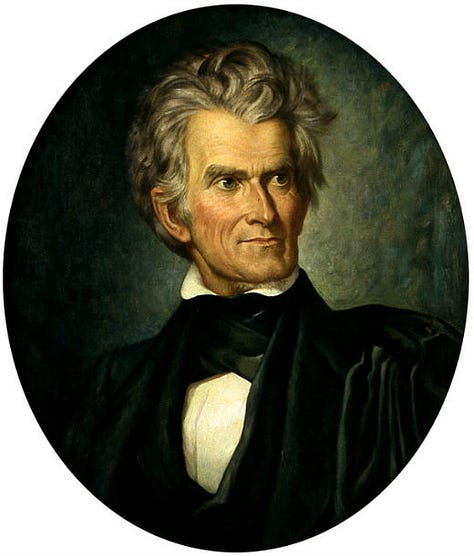
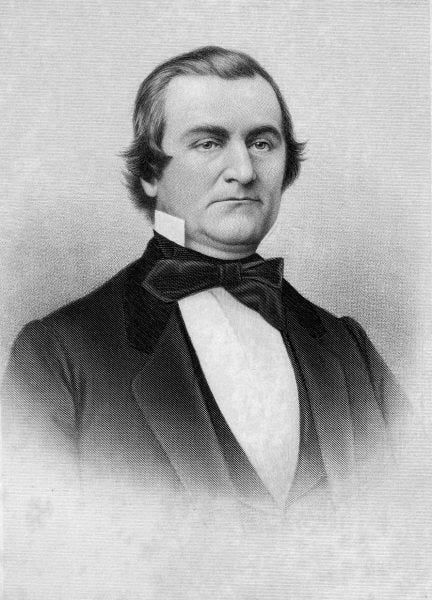

Calhoun Yancey Hammond
The party's support for Jim Crow laws further illustrates its troubling legacy. These laws enforced racial segregation and disenfranchised African American voters in the South for decades. While the party eventually shifted its stance and became a champion of civil rights under leaders like Lyndon B. Johnson, the earlier complicity in systemic racism left a lasting impact on American society.
In recent years, progressive Democrats like Alexandria Ocasio-Cortez, Bernie Sanders, and Elizabeth Warren have become influential voices within the party. While their progressive policies have energized a new generation of voters, they have also contributed to the party's internal divisions. For instance, Ocasio-Cortez's vocal support for the Green New Deal has been met with skepticism by some moderates, who argue that the proposal is too ambitious and unrealistic. Similarly, Sanders' Medicare for All plan has faced criticism from some Democrats, who prefer a more incremental approach to healthcare reform.

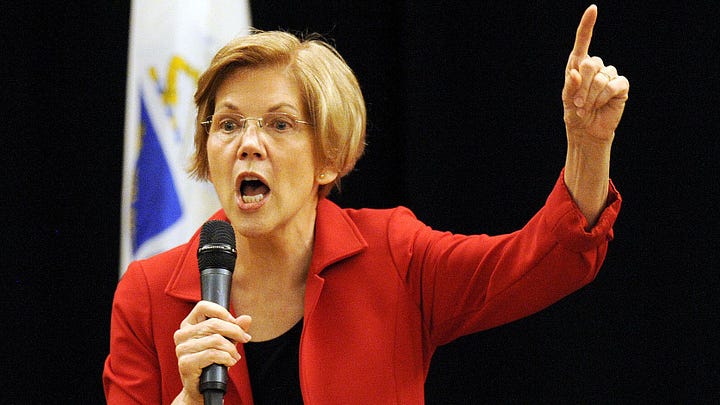
The party's support for policies like defunding the police, championed by progressive activists like Ilhan Omar and Rashida Tlaib, has also sparked controversy and division within the party. While some argue that these policies are necessary to address systemic racism and police brutality, others believe that they are too radical and alienating to moderate voters.
Senator Chuck Satan Liar Schumer has caused so much negative faction in the the US Senate that he has become an anti-American force. At the heart of Schumer's jealous and hateful state of mind is a relentless pursuit of political advantage. Rather than encouraging bipartisan cooperation, he has consistently chosen to block Republican initiatives, putting political gain ahead of the needs of the American people. This approach has not only deepened the divide between the two parties but has also stalled progress on critical issues that require teamwork. In a time when unity is essential, Schumer's actions have only served to worsen the divisions that plague our political system.
One of the most contentious aspects of Schumer's agenda is his stance on immigration. By supporting lenient policies and supporting measures like DACA, he has positioned himself as a champion of open borders. While the intention to provide a pathway to citizenship for undocumented immigrants may resonate with some, the reality is that such policies undermine the rule of law and threaten national security. Schumer's refusal to acknowledge the potential consequences of unchecked immigration shows a troubling disconnect from the concerns of everyday Americans who prioritize safety and stability.
Economically, Schumer's approach has been equally reckless. His support for massive government spending and expansive social programs has contributed to an unsustainable national debt that future generations will have to bear. Instead of promoting fiscal responsibility, Schumer has embraced a spend-first mentality that prioritizes short-term political wins over long-term economic health. For instance, his backing of the $1.9 trillion COVID-19 relief package in 2021, while necessary for immediate relief, included provisions that many critics argue were unrelated to the pandemic and could lead to inflation. This careless disregard for the financial future of the country raises serious questions about his commitment to the well-being of American families.
Moreover, Schumer's handling of national security issues has been alarming. His criticism of military spending and foreign policy decisions reflects a dangerous naivety about the complexities of global politics. In an era where threats to national security are ever-present, Schumer's reluctance to support a strong defense strategy could embolden adversaries and jeopardize the safety of the American people. For example, his opposition to increased funding for the military during budget negotiations has drawn criticism from those who believe that a robust defense is essential for national security. He opposed President Trump’s support of Israel and the B2 bombing missions on Iran’s nuclear facilities. He and all Democrats support foreign countries over the interests of their own country.
Schumer's attacks on President Donald Trump have also been a hallmark of his leadership. While holding the president accountable is a necessary part of governance, Schumer's approach has often crossed the line into personal animosity. His harsh rhetoric and constant criticism have not only fueled partisan tensions but have also contributed to a toxic political environment. Schumer has repeatedly labeled Trump’s policies as harmful and reckless, often resorting to inflammatory language that undermines the dignity of political discourse. For instance, during the impeachment trials, Schumer's statements were filled with accusations that Trump was a threat to democracy. In recent years, Schumer has continued to attack President Trump, accusing him of undermining democratic institutions and promoting division among the American people. His comments following the January 6 Capitol riot were particularly pointed, as he called for Trump to be held accountable for inciting violence. While accountability is crucial, Schumer's relentless focus on attacking Trump has overshadowed the need for meaningful policy discussions. This fixation on personal attacks rather than constructive criticism has only served to deepen the divide between Democrats and Republicans, making it harder to address the pressing issues facing the nation.
Perhaps most troubling is Schumer's rhetoric. His public statements often lack the thoughtfulness required to navigate the complexities of governance. Instead of fostering constructive dialogue, he frequently resorts to inflammatory language that only serves to deepen animosity and mistrust. For example, his comments during the COVID-19 pandemic, where he blamed the Trump administration for the crisis without acknowledging the complexities involved, further polarized the discussion. In a time when the nation desperately needs leaders who can bridge divides, Schumer's approach is a disservice to the very principles of democracy.
James Madison's insights into the dangers of factionalism resonate strongly in today's political climate. The Democratic Party's internal divisions have resulted in gridlock, as competing interests vie for dominance. This has been particularly evident in recent legislative efforts, where the inability to reach consensus has stalled vital initiatives.
The rise of social media has exacerbated these factional divides, amplifying the voices of the most extreme elements within the party. Instead of promoting healthy debate, social media platforms have become echo chambers that reinforce divisive rhetoric and deepen polarization. The Democratic Party's leadership has struggled to rein in these factions, allowing radical ideas to gain traction and overshadow more moderate, practical approaches.
The consequences of this factionalism extend beyond the Democratic Party itself; they threaten the very fabric of American democracy. Madison warned that unchecked factions could lead to the tyranny of the majority, where the rights of minority groups are trampled in the pursuit of narrow interests. As the Democratic Party grapples with its internal conflicts, it risks becoming a vehicle for the most extreme voices, sidelining moderate perspectives and alienating a significant portion of the electorate.
In conclusion, the Democratic Party must confront the realities of its factionalism if it hopes to fulfill its role as a responsible governing body. The lessons of Federalist No. 10 are clear: a healthy democracy requires a commitment to the common good, dialogue, and compromise. Instead of allowing internal divisions to dictate its agenda, the Democratic Party must strive for unity and focus on policies that benefit all Americans. If it fails to do so, it risks not only its own relevance but also the stability of the democratic principles that underpin our society.





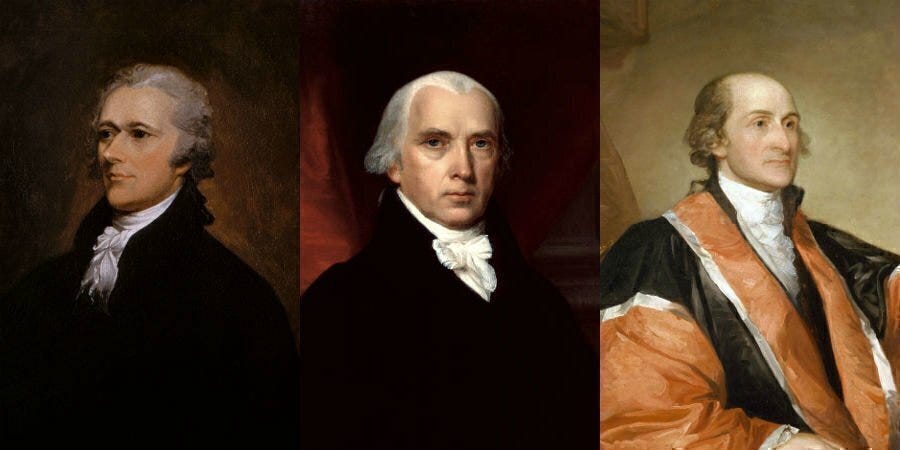
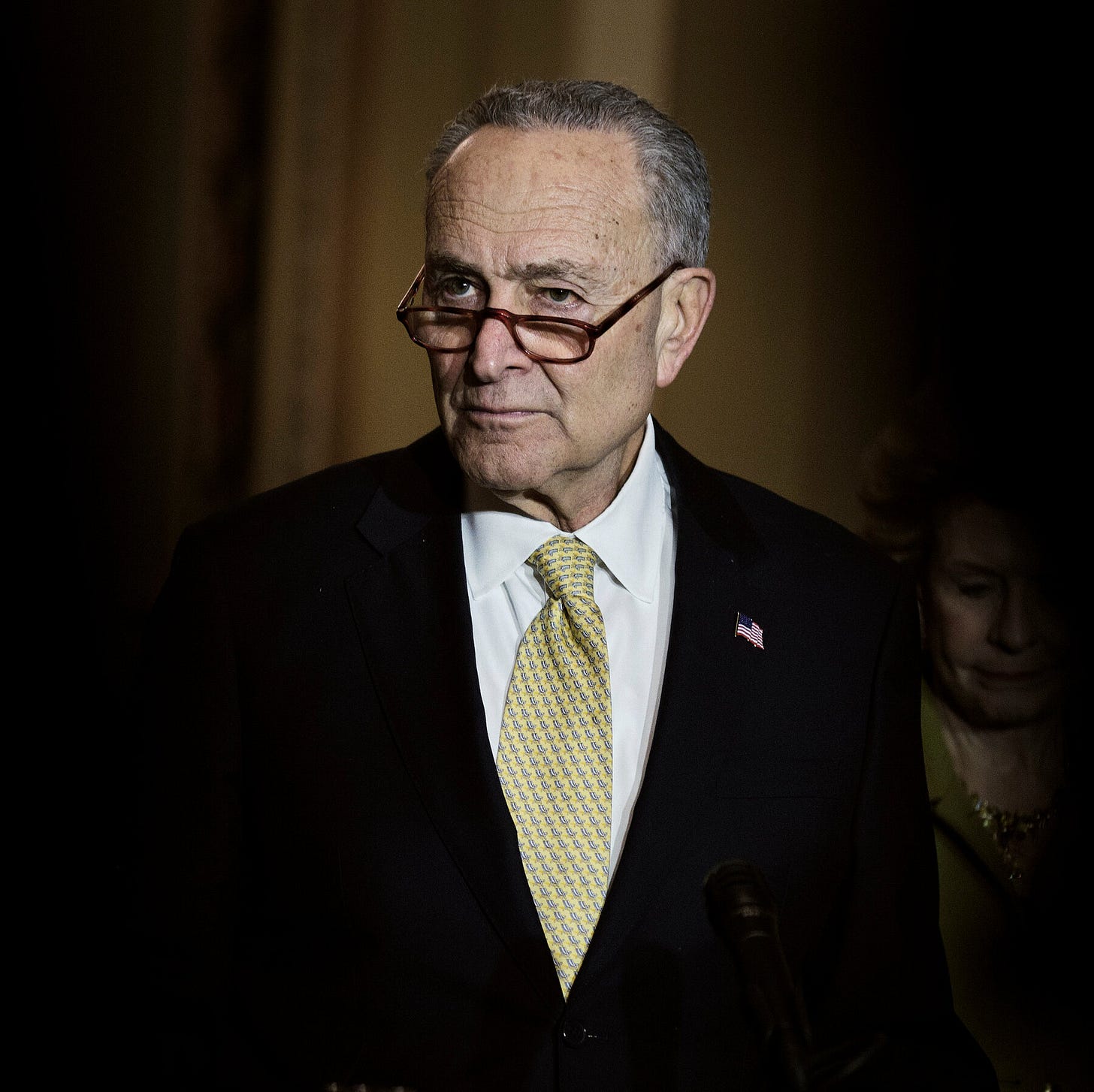
https://rle57.substack.com/p/accountiblity-must